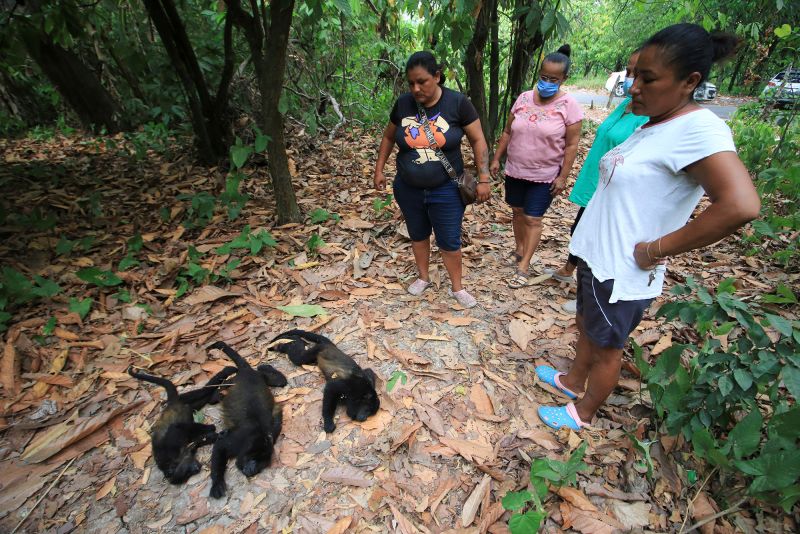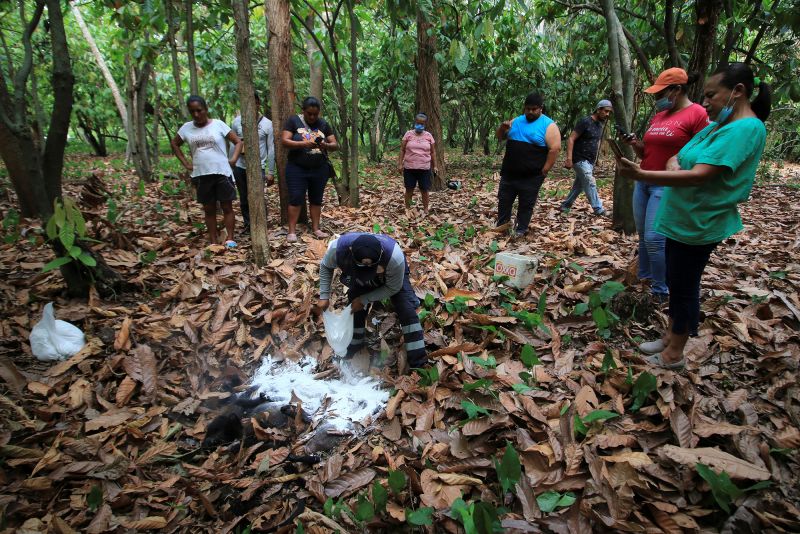
Mexican Forests Witness Tragic Loss of Endangered Howler Monkeys in Harsh Heat Wave

A heartbreaking scene unfolds in Mexico's southeastern forests as numerous endangered howler monkeys succumb to the brutal heat wave. The causes of their deaths, which may include heat stroke, dehydration, and malnutrition, highlight the devastating impact of the scorching temperatures on these threatened primates.
Howler monkeys in Mexico's southeastern tropical forests are facing a serious threat as they have been found dead in recent weeks, falling from trees. The country is currently experiencing a nationwide drought and ****heat waves, leading to high temperatures in many areas.
In the state of Tabasco, temperatures are expected to rise above 45 degrees Celsius (113 Fahrenheit) this week. Local media have reported around 85 monkey deaths in the area, although authorities have acknowledged the situation without giving an exact number of casualties.
Tabasco’s Civil Protection agency stated over the weekend that the monkeys' deaths were due to dehydration. A source from the agency informed Reuters on Monday that the dead monkeys were found in three municipalities of the state.
In a forest outside Camalcalco, Tabasco, volunteers gathered the bodies of mantled howler monkeys who had succumbed to the heat. Afterwards, they placed buckets of water and fruit in an effort to prevent further casualties.
The mantled howler monkey is listed as vulnerable on the International Union for Conservation of Nature Red List.
Volunteers observe dead monkeys that fell from trees amid a heat wave in Buena Vista, Comalcalco, Mexico on May 18, 2024.
Volunteers observe dead monkeys that fell from trees amid a heat wave in Buena Vista, Comalcalco, Mexico on May 18, 2024.
Luis Manuel Lopez/Reuters
A Civil Protection worker pours lime over the bodies of monkeys in Buena Vista, Comalcalco, Mexico on May 18, 2024.
A Civil Protection worker pours lime over the bodies of monkeys in Buena Vista, Comalcalco, Mexico on May 18, 2024.
Luis Manuel Lopez/Reuters
"The heat is really intense. I've been in the states for a while now, and this is the most I've ever felt it," shared Mexican President Andrés Manuel López Obrador, who hails from Tabasco, during a discussion about the monkey deaths.
During his usual news conference, he emphasized the importance of taking care of the animals. "We need to make sure we look out for the animals, and we will definitely do so," he assured.
On Monday, Mexico's environment ministry announced that they were working together to investigate the deaths of the monkeys. They listed possible reasons for the deaths, such as heat stroke, dehydration, malnutrition, or exposure to toxic chemicals used on crops.
Mexico has been experiencing extremely high temperatures for weeks, leading to tragic consequences. The health ministry reported that from March 17 to May 11, a total of 26 people have died due to the extreme heat.
Extreme heat is being driven by human-caused climate change, in combination with El Niño, a natural climate pattern which affects global weather.
Editor's P/S:
The plight of the howler monkeys in Mexico's drought-stricken forests is a heartbreaking reminder of the devastating impacts of climate change. The extreme heat and dehydration have taken a heavy toll on these vulnerable animals, whose deaths serve as a grim warning about the urgent need to address the climate crisis.
It is deeply concerning that the situation may be even more dire than reported, with the true number of monkey casualties likely to be higher than the official estimate. The Mexican government and environmental organizations must work together to investigate these deaths thoroughly and implement measures to protect the remaining monkeys. It is crucial to provide them with access to water and shade, while also addressing the underlying causes of this tragedy, including habitat loss and the use of toxic chemicals in agriculture.















